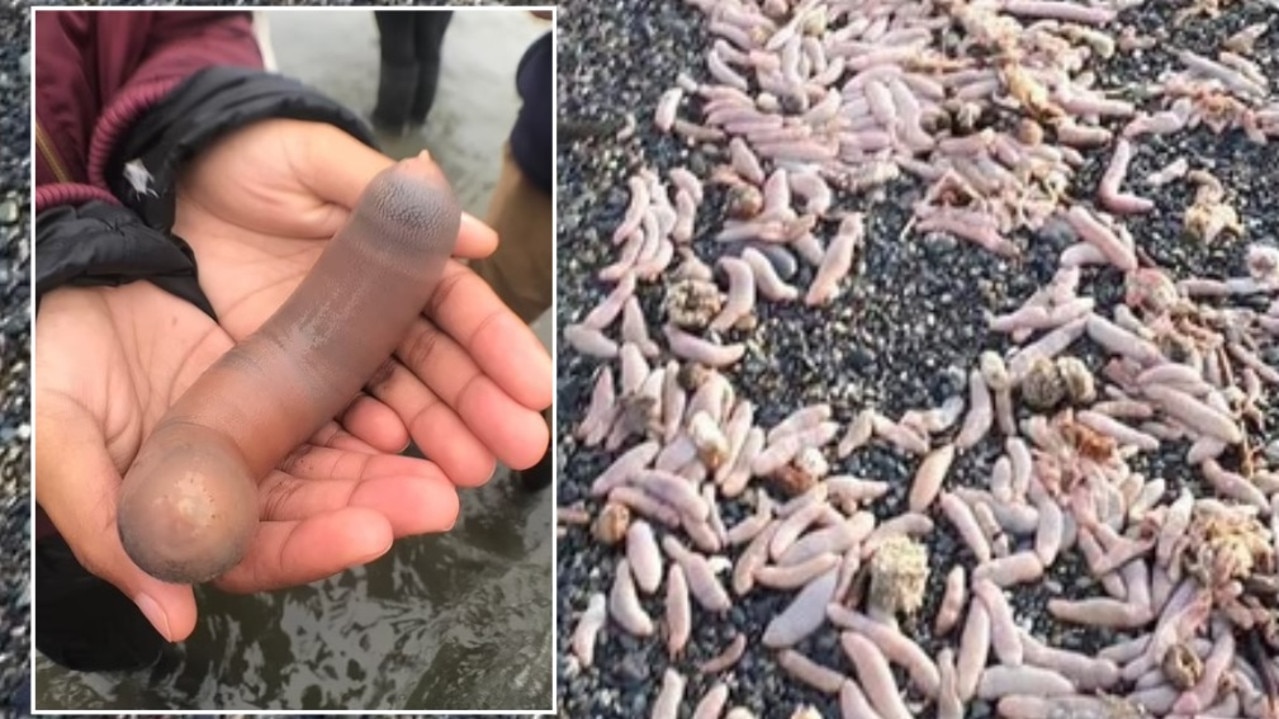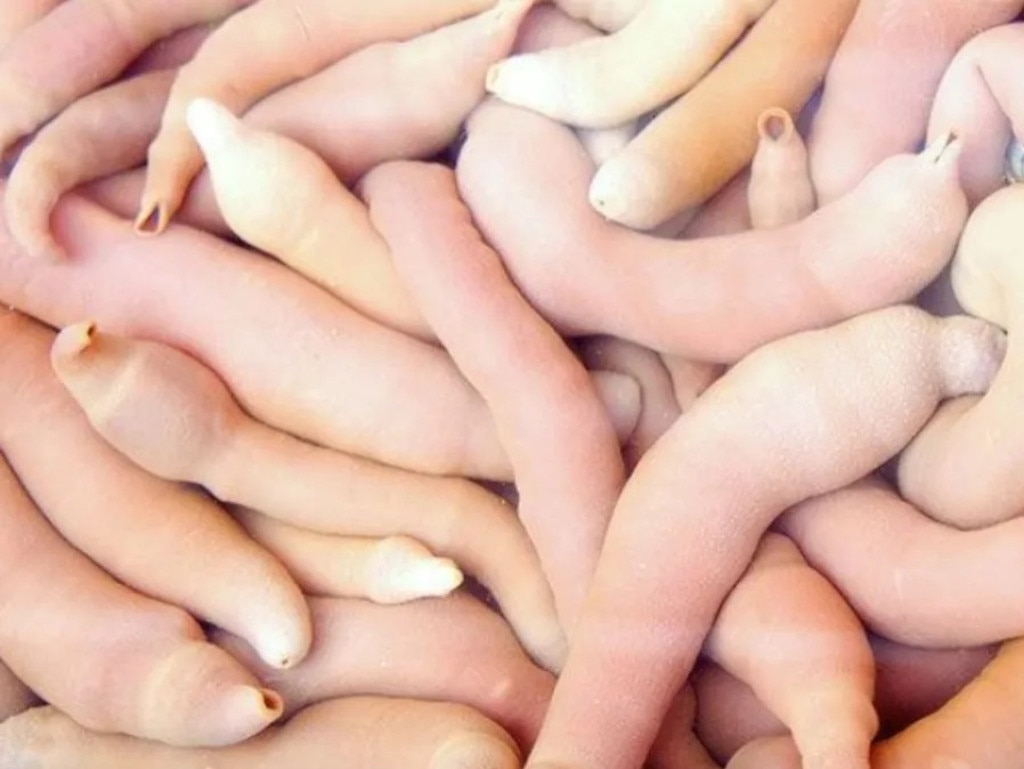Fisherman scramble to collect ‘penis fish’ after thousands found
Thousands of ten-inch “penis fish” have washed up on a beach in Argentina in a bizarre phenomenon that has baffled internet-users.

Thousands of ten-inch “penis fish” have washed up on a beach in Argentina in a bizarre phenomenon that has baffled internet-users.
The lewd-looking sea worms lined the beaches of Multillar, north of Rio Grande, earlier this week.
The wriggly, pale pink worms washed up after a heavy storm that battered the region on Monday afternoon.
Although photos of the creatures went viral, their appearance onshore is not uncommon in Argentina, where stacks of sea worms periodically wash up after torrential rain.
Though referred to online as “penis fish”, the creatures have been identified as urechis unicinctus, a type of spoon worm that typically lives buried under the ocean floor but can be uprooted by heavy storms and swell.
Local fishermen have flocked to the beach to gather up the worms, which they use as bait particularly while fishing for sea bass, according to local outlets.

Also known as the “fat inkeeper worm”, the creatures create U-shaped burrows in the seabed that are left over for other animals to move in -- hence their moniker.
Fossil evidence of their burrows indicates urechis unicinctus have been around for about 300 million years. Humans, by contrast, have only been around for about 200,000 years.
The creatures, which are preyed upon by larger fish, sharks, seagulls and otters, can live for up to 25 years.
Though they look rather bizarre, the sea worms are highly sought after in Asia, where they are believed to have medicinal properties.
In South Korea, Japan and China, for instance, the worms are eaten raw with salt and sesame oil. Their taste is described as mild and their texture similar to that of clams.
Thousands of the peculiar worms previously washed up onto a Californian beach in 2019.
More Coverage
“The same phenomenon has been reported over the years at Pajaro Dunes, Moss Landing, Bodega Bay, and Princeton Harbor,” marine life expert Ivan Parr wrote at the time.
“I’ve heard my share of imaginative theories from beachcombers, such as flotsam of a wrecked bratwurst freighter.
“In truth, these are living denizens of our beaches rudely, yet also mercifully, mostly called ‘fat innkeeper worms’.”






